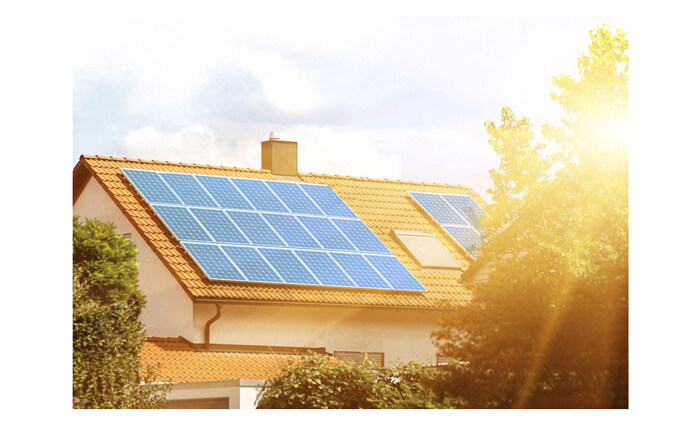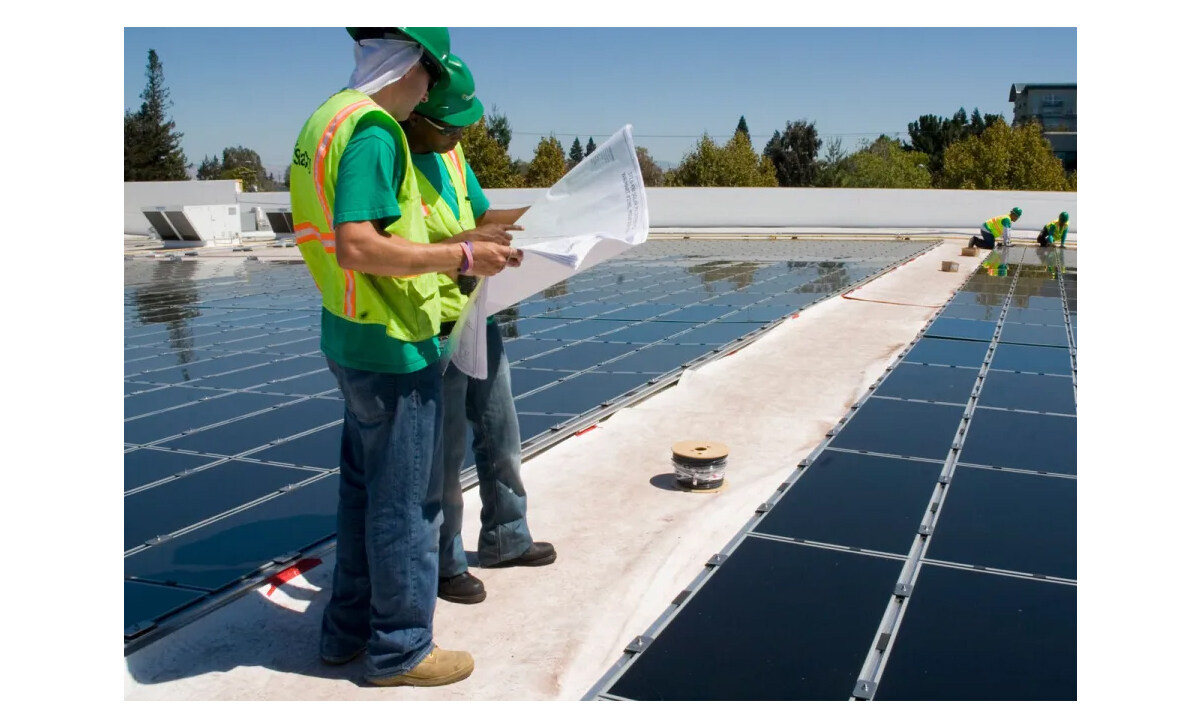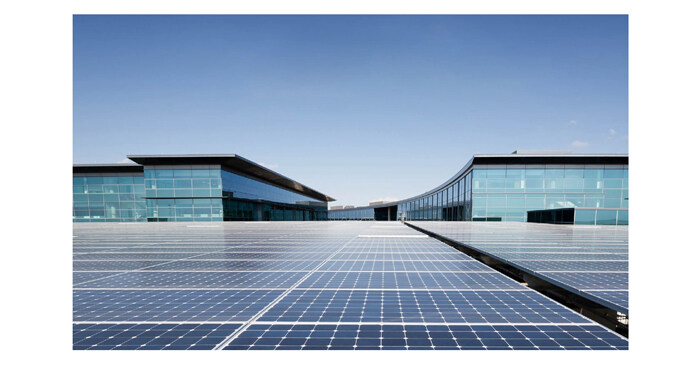Contents:
1. Meeting Climate Goals and International Commitments
2. Reducing Energy Dependence
3. Economic Revitalization and Job Creation
4. Democratizing Energy Access
5. Advancing Technological Innovation
6. Legal and Regulatory Compliance
7. Responding to Public Demand and Political Pressures
Challenges and Criticisms
Conclusion
FAQs
In recent years, France has accelerated its transition toward renewable energy, with a particular emphasis on solar power. The French government's decision to heavily subsidize solar energy is not an isolated phenomenon but a reflection of broader environmental, economic, political, and societal objectives. This article explores in depth the key reasons behind this policy, its potential impacts, and the challenges ahead.

1. Meeting Climate Goals and International Commitments
One of the most compelling reasons behind France’s solar energy subsidies is the commitment to climate change mitigation. France, as a signatory of the Paris Agreement, has pledged to reduce its greenhouse gas emissions significantly. Specifically, France aims to achieve carbon neutrality by 2050.
Solar energy, being clean and abundant, offers a powerful solution to decarbonize the energy sector, which is one of the major contributors to global warming. By subsidizing solar power, France hopes to meet its interim targets set out in its National Low Carbon Strategy (Stratégie Nationale Bas-Carbone, SNBC) and Integrated National Energy and Climate Plan (NECP).
Moreover, the European Green Deal, which targets making Europe the first climate-neutral continent, pressures member states to intensify their renewable energy efforts. France’s subsidies for solar energy reflect its attempt to lead by example within the European Union.
2. Reducing Energy Dependence
Although France traditionally boasts a relatively low-carbon electricity sector thanks to its nuclear fleet, it is not immune to energy security concerns. Recent geopolitical tensions, notably the Russia-Ukraine conflict, have exposed vulnerabilities in fossil fuel supplies across Europe.
By investing heavily in domestically produced solar energy, France aims to reduce its dependence on imported gas, oil, and even uranium, much of which is sourced internationally. Solar energy represents a decentralized, locally available resource that enhances national energy sovereignty.
In this regard, subsidizing solar panels for households, businesses, and local governments ensures that more of the energy consumed in France is produced within its own borders, mitigating risks linked to international supply disruptions.

3. Economic Revitalization and Job Creation
The solar energy sector is labor-intensive, particularly during installation and maintenance phases. According to France’s Renewable Energy Syndicate (SER), the photovoltaic industry could create tens of thousands of new jobs by 2030.
Subsidies not only stimulate the domestic manufacturing of solar panels and related components but also drive demand for skilled labor in engineering, construction, and research and development. This aligns with broader government strategies to rejuvenate rural areas and industrial regions suffering from economic decline.
Moreover, supporting green industries is a way to position France as a global leader in clean technologies, tapping into export markets and fostering innovation ecosystems around solar technologies.
4. Democratizing Energy Access
Another important rationale for solar subsidies is the democratization of energy access. Through grants, feed-in tariffs, and tax credits, the government makes it easier for individuals, cooperatives, and small businesses to participate in energy production.
Initiatives like Autoconsommation solaire (solar self-consumption) empower households to generate and use their own electricity, reducing utility bills and promoting energy independence. Subsidies lower the high upfront costs of solar installations, enabling middle- and low-income households to benefit from renewable energy.
In the long term, this grassroots approach could decentralize the energy grid, making it more resilient and inclusive while encouraging a culture of environmental stewardship among citizens.

5. Advancing Technological Innovation
Subsidies often go hand-in-hand with funding for research and innovation. France seeks not only to deploy existing solar technologies but also to develop next-generation solutions such as:
Public support helps de-risk investments in these emerging technologies, accelerating their commercial viability. By nurturing a vibrant research ecosystem around solar energy, France aims to maintain technological competitiveness in a rapidly evolving global energy landscape.
6. Legal and Regulatory Compliance
France’s energy policies are governed by the Loi relative à la transition énergétique pour la croissance verte (Energy Transition Law for Green Growth) adopted in 2015. This legislation sets ambitious targets, including increasing the share of renewables in final energy consumption to 32% by 2030.
Solar energy is pivotal in achieving these targets, especially given the stagnation in other renewable sectors like hydro and biomass, which face physical or ecological limits. Therefore, subsidies ensure compliance with domestic law and avoid penalties or political backlash.
Furthermore, European Union directives such as the Renewable Energy Directive (RED II) legally bind France to contribute to collective renewable energy goals, reinforcing the need for proactive measures like solar subsidies.
7. Responding to Public Demand and Political Pressures
Public opinion in France has increasingly favored renewable energy over traditional sources. Multiple surveys show overwhelming support for solar energy among the French population.
Environmental groups, civil society organizations, and local governments lobby for stronger action on climate change. In this political climate, subsidizing solar energy helps the government maintain public trust and political legitimacy, particularly in light of the Gilets Jaunes (Yellow Vests) protests, which were partially triggered by perceptions of unfair energy policies.
Affordable, decentralized solar energy projects resonate well with the public’s desire for an ecological transition that is also socially equitable.
Challenges and Criticisms
Despite its many benefits, France's solar subsidy program is not without challenges:
-
Financial Cost: Subsidies require significant public investment, raising concerns about fiscal sustainability.
-
Land Use Conflicts: Large solar farms can conflict with agricultural activities and biodiversity conservation.
-
Grid Integration: Managing variable solar power demands upgrades to grid infrastructure, smart metering, and storage solutions.
-
Dependency on Imports: Ironically, much of the photovoltaic technology is imported from Asia, raising questions about the resilience of the supply chain.
-
Equity Issues: Some critics argue that wealthier households are better positioned to take advantage of subsidies, potentially exacerbating inequalities.
The government is attempting to address these issues through more targeted policies, for example by prioritizing subsidies for collective solar installations on social housing and agricultural buildings.
Conclusion
The French government's subsidies for solar energy are a strategic response to a complex array of environmental, economic, social, and geopolitical challenges. Far from being a mere environmental gesture, they represent a cornerstone of France’s broader transformation toward a sustainable, resilient, and equitable energy system.
In the coming years, the success of this initiative will depend on the government's ability to fine-tune its subsidy programs, ensuring that they deliver maximum environmental benefit while minimizing social and economic risks. If successful, France could not only meet its ambitious climate targets but also emerge as a global leader in the solar energy revolution.
FAQs
1. Why is France investing heavily in solar energy?
France is investing in solar energy to meet its climate goals, strengthen energy independence, create jobs, and support technological innovation.
2. How do solar subsidies benefit French citizens?
Solar subsidies reduce the cost of installing solar panels, making renewable energy more affordable and empowering citizens to produce their own electricity.
3. What challenges does France face in expanding solar energy?
Key challenges include managing the high financial cost of subsidies, upgrading grid infrastructure, balancing land use, and reducing reliance on imported solar technology.
4. How does solar energy fit into France’s 2050 carbon neutrality target?
Solar power plays a critical role by providing a clean, scalable energy source that helps lower national carbon emissions in line with the Paris Agreement.
5. Are there any social equity concerns with France’s solar subsidies?
Yes, while subsidies promote renewable energy, wealthier households may benefit more easily, prompting policies aimed at broader and fairer access to solar incentives.








